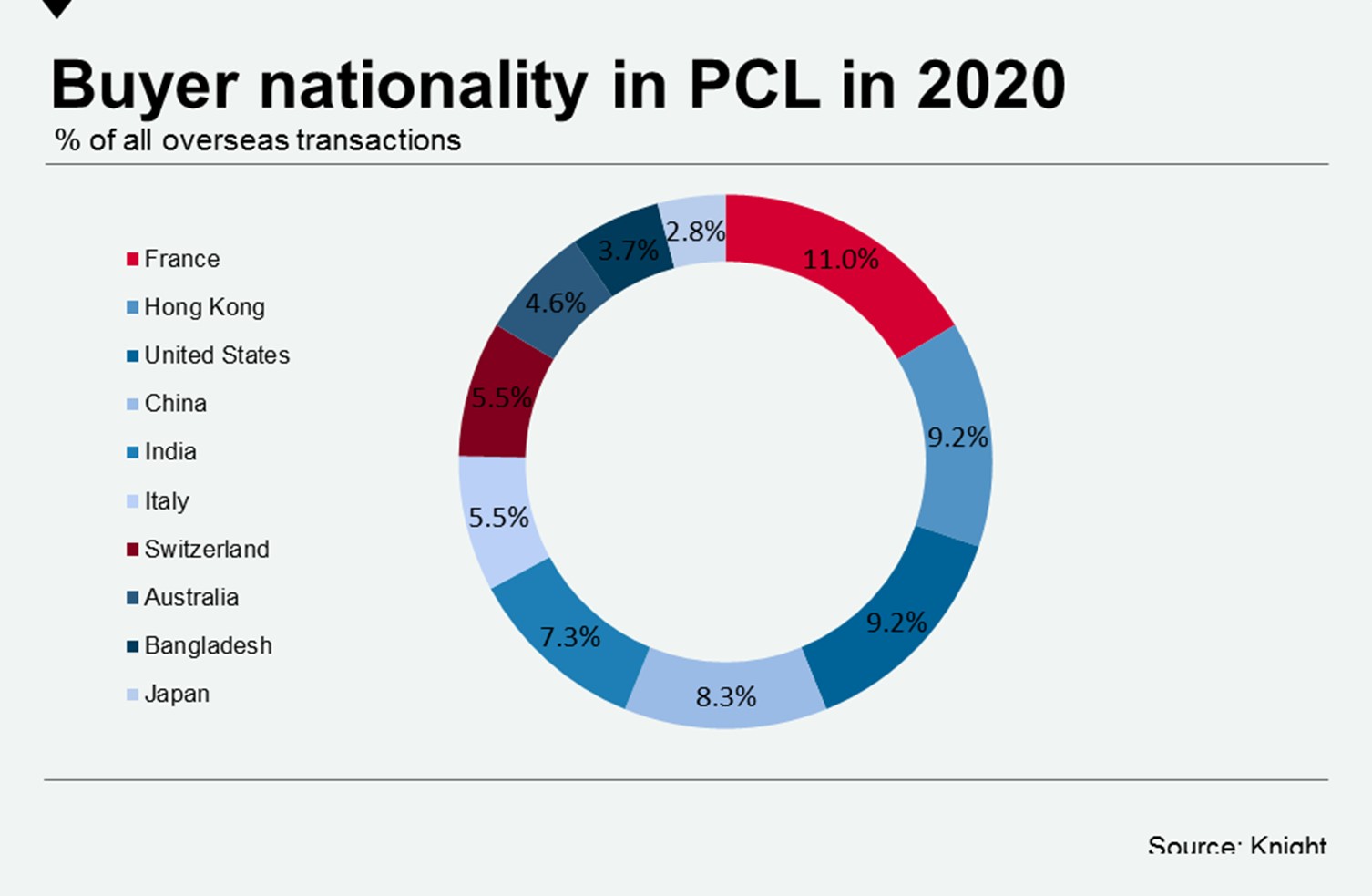UK Property Market Outlook: Week Beginning 19 October
New analysis shows how the international buyer landscape in prime central London has changed in 2020
2 minutes to read
There are obvious parallels with 2019 as Brexit tensions escalate in the final months of the year.
However, despite the current bout of brinkmanship, the rhetoric from London and Brussels isn’t quite reverberating in the way it did before the global pandemic.
More economists seem to believe the stakes are too high for a no-deal outcome and both sides will reach an agreement, even if rudimentary. Goldman Sachs is among those who believe this will be the outcome and concluded the pound looked cheap earlier this month. The pound dipped before stabilising on Friday after Boris Johnson clarified that he is not walking away from talks.
We have previously outlined the considerations and motivations for international buyers in London over the next six months. While the lifting of international travel restrictions is the primary concern for many, others are capitalising on the travel hiatus and looking beyond the political uncertainty of the next few months.
“Despite the background noise of Brexit, there is smart money in Europe targeting London,” said Tom Bill, head of UK residential research at Knight Frank. “The combination of a weak pound, a looming stamp duty hike and less competition from buyers who need to catch a long-haul flight has created a buying opportunity.”
These changing dynamics have certainly shaped the make-up of international buyers in the capital this year.
The largest group of overseas buyers in prime central London in the first nine months of 2020 was from France, according to Knight Frank data.
They accounted for 11% of all transactions involving overseas buyers, as the below chart shows. It was the first time the French have been the largest group of international buyers over this period.
Chinese buyers have dominated in recent years and accounted for 15% of overseas transactions in PCL between January and September 2019, while French buyers represented just 2%.

UK buyers unsurprisingly also represent a larger proportion of overall sales in PCL in 2020, which are down by around a third in the first nine months of this year. They accounted for 59% of deals over the period compared to 47% last year.
As Brexit negotiations continue, so has the downwards pressure on the pound.
Between the period before the EU referendum and the middle of last week, Euro-denominated buyers benefitted from an effective discount (currency plus house price movement) of 30% in PCL. That is a big number, irrespective of the latest rhetoric surrounding Brexit.
For buyers denominated in US dollars or dollar-pegged currencies, the equivalent discount is 27%.
When you also factor in how much can be saved ahead of a stamp duty hike for overseas buyers next April, as we analyse here, you can see why those international buyers who are able to get to London more easily have decided to now is the time to act.
We explore some of the issues surrounding Brexit in more depth in our latest podcast here.
Main photo by Cecile Hournau on Unsplash